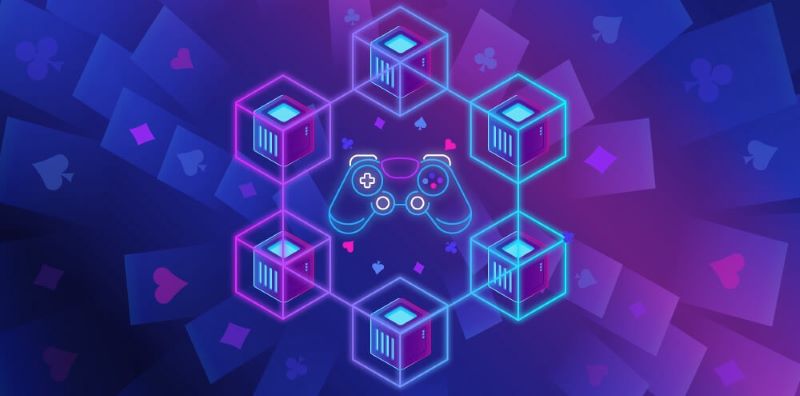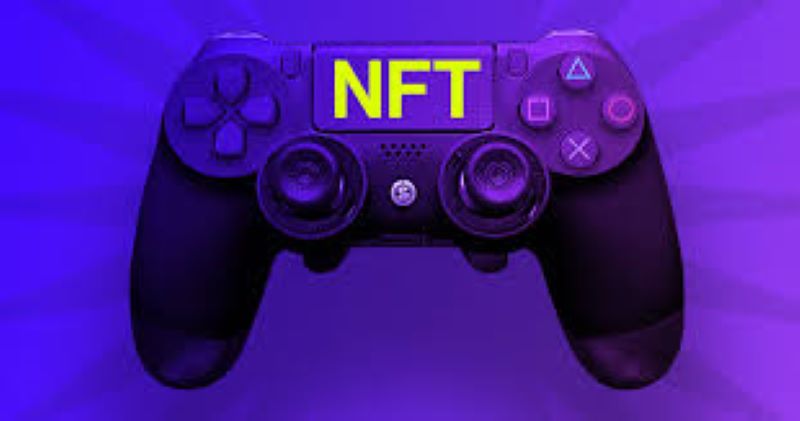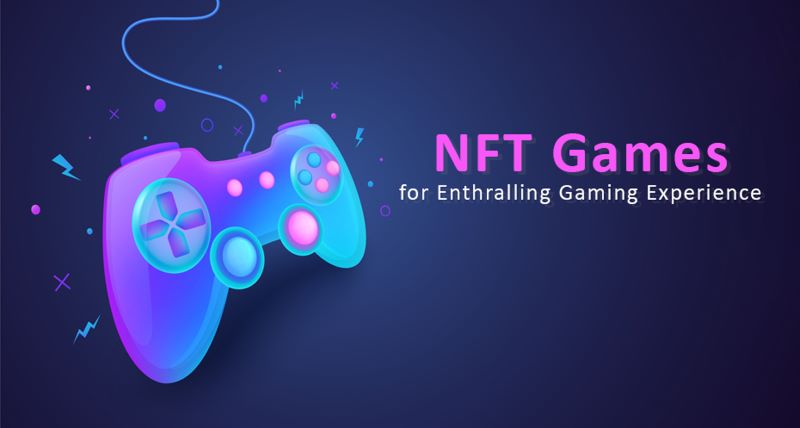What is blockchain gaming? Imagine playing your favorite game and owning every victory, big or small. The rise of blockchain gaming marks a bold new chapter in how we play and profit from games. Gone are the days of playing just for high scores or endless bragging rights. We’re moving into an era where your online battles and strategic trades can earn real value, and where every skin or weapon you snag becomes truly yours—tradeable, sellable, and unmistakably part of your digital footprint. This isn’t just a new level of gaming; it’s a revolution that’s breaking the old rules and setting up new realms of play where players hold the power. Let’s jump in and discover how this tech is reshaping the world of interactive play.
Understanding the Fundamentals of Blockchain Gaming
The Emergence of Blockchain-Based Games
Games on the blockchain are changing our play. Unlike old games, these let you own parts of the game itself. This means the swords or spaceships you get can become really yours, not just in the game but outside too.
These games run on a blockchain, a chain of data blocks. Each block has info that links to the next, creating a secure chain. Without one central place holding this chain, it’s hard to mess with the game. This is called decentralization.
How Decentralized Gaming is Disrupting Traditional Models
In traditional gaming, the game maker has all the power. They control the game, the rules, and what you can keep in the game. Decentralized gaming flips this. It offers a way for players to call shots in games. They can own assets as crypto tokens and change the game through votes.
Old games sometimes close, and everything in the game gets lost. Blockchain games keep your stuff safe, even if the game ends. This means in a blockchain game, what you get stays yours. You can play, trade, or sell these items. You do this with NFTs, tokens that show you’re the owner.
Play-to-earn is another cool bit. You can make real money while playing by earning tokens with value. This makes every game move mean more.
Blockchain technology in games uses Ethereum often, a place where many of these games live. It’s a top pick for gaming DApps–decentralized apps. DApps turn gaming into more than fun. They give you a stake in the game’s world.
Smart contracts in gaming are rules written in code. They automatically make things happen in the game based on these rules. These contracts handle your wins, trades, and owning game items, all written on Ethereum’s blockchain.
Many people wonder, “Can I earn playing games?” Yes! With in-game cryptocurrency, you win tokens by playing well. These tokens can have real value and even grow over time. This is called yield farming in games – collect tokens and watch your virtual wallet grow.
I also have to talk about governance tokens. These tokens aren’t just money; they give you a voice. Having these tokens means you can vote on changes in the game.
Central to all this is player-driven economies. This means not only the game makers but the players help shape the game world. It’s like having a say in how a city runs in real life.
Interoperability in games is crucial. Your sword from one game could move with you to another! This makes tokens and items more valuable.
The world of blockchain gaming is vast and growing. With every new idea, we move closer to a reality where we not only play but truly own parts of digital worlds. It’s a future filled with endless possibilities, and it’s happening right now.
The In-game Economics of Blockchain Gaming
Exploring Play-to-Earn Mechanics
Think of the last time you played a game and found a rare item. It felt good, right? Now, imagine you could sell that item and make real money. Welcome to play-to-earn games, where playing well means earning for real.
In play-to-earn (P2E) games, your hard work pays off in cryptocurrency. You start by creating a character and playing just like in any game. But here’s the cool part: you can earn tokens by completing tasks or winning battles. These tokens are real money that you can save, spend, or trade. You truly own what you earn. Is this real work? You bet! And it’s changing how we think about playing games.
The Role of NFT In-Game Items and Digital Collectibles
Now let’s talk about the stuff you own in these games. These are not just any items; we’re talking about non-fungible tokens (NFTs). Each NFT is one-of-a-kind, like a rare trading card in the digital world.
So why do gamers go nuts for NFTs? Because they’re rare and they prove it’s yours. You can show off unique items or even sell them in marketplaces. Think about it like a digital treasure you can actually keep or sell. NFTs make your game stuff valuable in the real world, not just in the game.
These tokenized treasures make the game more than a game. They tie real value to what you do and what you own. That’s pretty epic. It means the sword you win or the land you build on can be worth a ton. And it’s all in your control, thanks to blockchain. It keeps track of who owns what, so when you say it’s yours, it really is.
These mechanics aren’t just about fun; they’re about creating a whole new world where you can make a living by playing. And that’s a game-changer, literally.
Technological Underpinnings of the Blockchain Gaming Revolution
The Functionality of Smart Contracts in Gaming
Picture this: a game world where every move is a deal. Not with some big company, but with the game itself. This is where smart contracts come into play in gaming. They are like rules of a game, set in digital stone. When you follow the rules, smart contracts make sure everyone gets what’s promised. These digital contracts run on blockchain.
Now, smart contracts do magic in gaming. They handle scores, who wins, who gets new items, and who trades what. No need to trust anyone, as blockchain does the checking. It’s all about players owning their game moves.
In games, these smart contracts mean you can earn real stuff, like coins or special items. You get them by just playing the game (play-to-earn). And because it’s on a blockchain, no one can take them from you.
Ensuring Interoperability and Scalability in Ethereum Blockchain Games
Games need to grow and let you play with others easily. That’s a big job. But the Ethereum blockchain is stepping up. It’s like a huge game board where different games can meet and work together. This ability is called interoperability. It makes sure you can take your cool sword from one game to another. Or your hard-earned skills and items can move with you.
Scalability is like making sure our game board can hold more and more players. As more join in, the game still runs smooth. Ethereum is working on this. It’s like adding more lanes to a busy road.
You see, we use smart contracts and blockchains in games to make sure things are fair and to let you own your game wins. They also keep games fun and open doors to new friends and worlds. With Ethereum, games can grow and connect. It makes the future of gaming very exciting!
The Rise of Player Empowerment and Community Governance
From Gaming DApps to DAOs: Enhancing Community Engagement
Imagine as a player, you call the shots in the games you love. You don’t just play; you have a say in the game’s rules, the new features, and even how the money flows. This isn’t a far-off dream—it’s the here and now in blockchain-based games! Here, within every game lies a tiny world run by players. Through things called DAOs—or Decentralized Autonomous Organizations—gamers come together. They vote on big changes, just like in a real-world election.
In the land of Ethereum blockchain games, these DAOs are like player-made councils. They can manage gaming DApps, which are just games that run on blockchain. You get to vote on game updates or where to spend the community funds if you have gaming governance tokens. It’s like owning a piece of the game! This makes gaming more than fun. It becomes a place to make new friends, learn about blockchain, and even earn some money.
Projection and Impact: Funding, Investment, and Future of Blockchain Game Startups
Now, let’s look ahead. How are these blockchain game startups doing? Boy, are they catching eyes and wallets! More and more folks want to invest in these new worlds. We’re not just talking about nickels and dimes. We’re talking big bucks pouring in, helping these games grow. And it’s not only about making the games better for now. It’s about making sure they’re still around years down the line.
But why all this buzz? Well, blockchain in games is like a gold mine of chances. We’ve got play-to-earn mechanics, where you can earn real money playing games. We’ve got NFT in-game items, which are like virtual trading cards that can be worth a lot! Decentralized gaming means the power is with the players, not just the big companies.
And the cool part? The more folks play and earn, the more they help the whole game universe. More players mean more trade, more votes, and a bigger, better game for everyone. It’s like every player is a tiny part of the game’s beating heart.
So, what’s next for these growing games? They’re aiming to be as big as the biggest games out there. They’re working on getting faster, holding more players, and reaching into amazing worlds like virtual reality. This isn’t just play; it’s a leap into a future where games are fairer, more open, and packed with chances for everyone. That’s where we’re heading, and by the looks of it, the future of gaming’s brighter than ever!
We’ve dived into blockchain gaming, from its birth to its booming in-game economy. It’s clear that these games are not just passing trends. The way they use smart contracts and NFTs is changing how we play and profit. Games are now places where players have real power and a say in how things run. This world is still fresh, with lots to explore and improve. But one thing is sure: blockchain gaming has made its mark and is here to stay. It’s more than a game. It’s a new way to engage, earn, and even invest. As we gear up for the future, we’ll see how these digital worlds grow and how they’ll reshape gaming for good. Keep your game on, and be ready for what’s next.
Q&A :
What is blockchain gaming and how does it work?
Blockchain gaming, also known as crypto gaming, refers to games that incorporate blockchain technology to enable verified ownership of game assets, secure transactions, and allow for a decentralized gaming ecosystem. Players can buy, sell, or trade their digital assets (such as in-game currencies, items, or characters) like cryptocurrencies, relying on the blockchain’s transparency and security.
How does blockchain technology enhance gaming experiences?
Blockchain enhances gaming experiences by providing players with true ownership of their in-game assets through the use of non-fungible tokens (NFTs). It also allows for the creation of decentralized gaming worlds, where changes are permanent and trackable, and player interactions are peer-to-peer without the need for intermediaries, resulting in potentially more robust and engaging gaming economies.
Can you earn real money from blockchain games?
Yes, players can earn real money from blockchain games, often referred to as “play-to-earn” models. Users can accumulate valuable blockchain assets, such as cryptocurrencies and NFTs, by playing the game and can then convert these assets into fiat currency on various exchanges or through peer-to-peer transactions.
What are the security benefits of blockchain in gaming?
Blockchain technology in gaming offers enhanced security benefits by providing a tamper-proof ledger of all transactions and ownership. This means that once an action is recorded on the blockchain, it cannot be altered or deleted, greatly reducing the risk of fraud and hacking.
Are there any limitations to blockchain gaming?
While blockchain gaming holds immense potential, it also faces several limitations such as scalability issues, where large numbers of transactions can slow down the network. Additionally, the environmental impact of blockchain technology and the sometimes complex user experience for non-tech-savvy players are challenges that the industry is actively working to address.


